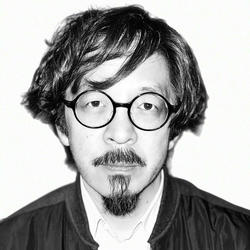Armando Hashimoto
Armando Hashimoto earned a Master of Science in advanced architectural design from Columbia University, where he was a member of the National System of Art Creators and a FONCA Young Creators fellow. In addition to teaching at RISD, he teaches at the Universidad Nacional Autónoma de México. He is co-founder, together with Surella Segú, of El Cielo, an office that encompasses architecture, urban planning, research and consulting projects in urban development, housing and community. Their work has been presented at various biennials and exhibitions and published in national and international media. They presented at the 2019 Seoul Biennale of Architecture and Urbanism, the Opportunity of Scarcity exhibition at the 2021 Chicago Architecture Biennale and at Arc en Rêve in Bordeaux, France in 2022.
